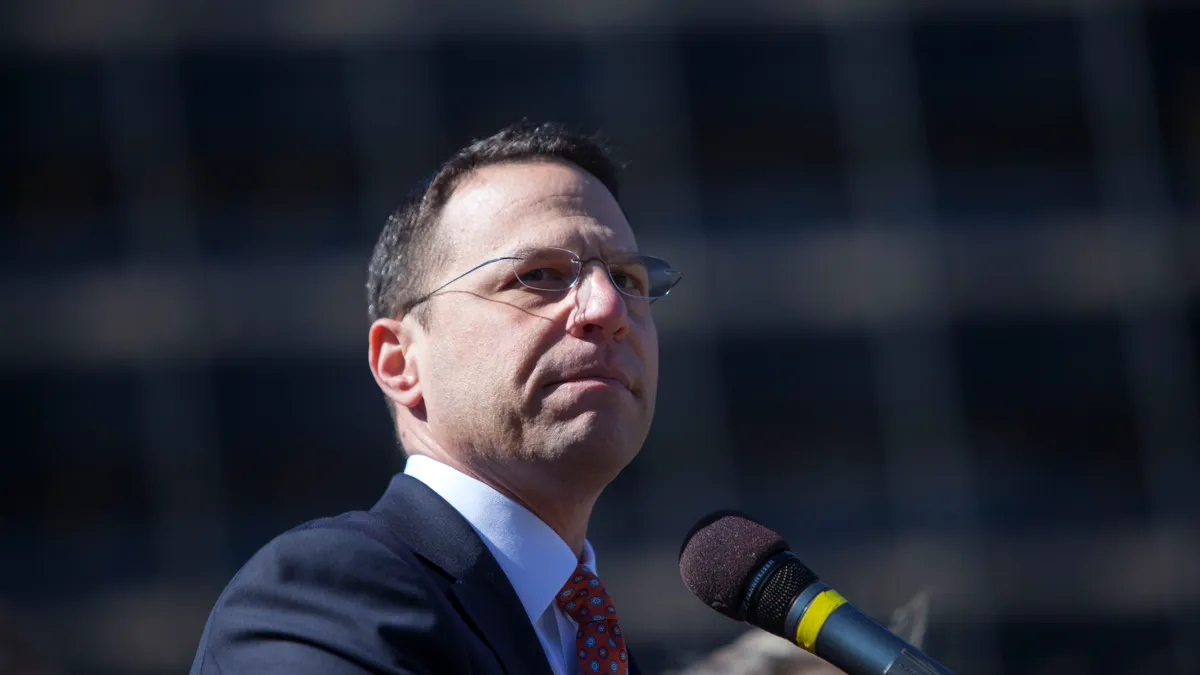Dive Brief:
- Navient, one of the largest student loan servicers in the U.S., will cancel the debt of nearly 66,000 borrowers in a mammoth $1.85 billion settlement announced Thursday.
- The arrangement ends state litigation against the company, which was accused of deceiving student borrowers by setting them up with pricey loan forbearances they were hard-pressed to repay. States also alleged that Navient issued subprime private loans to borrowers who it knew would be unable to repay the money.
- Navient, which denied the allegations, said the deal allows it to dodge the legal and financial fallout that would stem from the lawsuits.
Dive Insight:
The loan-servicing company has long been dogged by claims it has engaged in fraudulent practices, dating back to before it split from Sallie Mae in 2014.
More recently, in March 2021 a Washington state judge ruled Navient violated a consumer protection law by illegally misleading borrowers and their families and friends who co-signed student loans. The company did not properly disclose the terms of release from those obligations, the judge ruled.
Navient's new settlement with attorneys general from 38 states and Washington, D.C., will provide $1.7 billion in private student loan relief to 66,000 borrowers, primarily those who borrowed to attend for-profit institutions. These loans were in default and largely originated between 2002 and 2010.
The settlement also delivers an additional payout of $95 million, or about $260 each for roughly 350,000 federal loan borrowers who were placed in certain types of long-term forbearances.
Prosecutors alleged the company steered vulnerable student borrowers to costly loan options instead of advising them on more affordable income-driven repayment plans, in which monthly payments are sized based on a borrower's salary.
This resulted in significant amounts of unpaid interest being tacked onto borrowers' balances, driving them further into debt.
"Navient repeatedly and deliberately put profits ahead of its borrowers — it engaged in deceptive and abusive practices, targeted students who it knew would struggle to pay loans back, and placed an unfair burden on people trying to improve their lives through education," Pennsylvania Attorney General Josh Shapiro, who led the state efforts against Navient, said in a statement.
Meanwhile, Navient ardently denied the states' accusations, saying it did not violate consumer protection laws or harm borrowers. The company has increased enrollment in income-driven repayment plans, it said in a statement.
In addition to the settlement's financial terms, Navient must alert borrowers about the U.S. Department of Education's recent move to temporarily open the Public Service Loan Forgiveness program to more categories of student loans. The initiative forgives debt for borrowers who work in public or nonprofit fields and make payments on their loans for 10 years.
The Biden administration has begun reworking regulations around the federal student lending system, including for Public Service Loan Forgiveness.
This coincides with Navient's exit from federal student loan servicing, which it announced in September. It ended its contract with the Education Department and transferred its borrower accounts to Maximus, another federal contractor.
Navient still retains private student loans.
Two other loan servicers – the Pennsylvania Higher Education Assistance Agency and Granite State Management and Resources – last year also said they would cut ties with the department.













